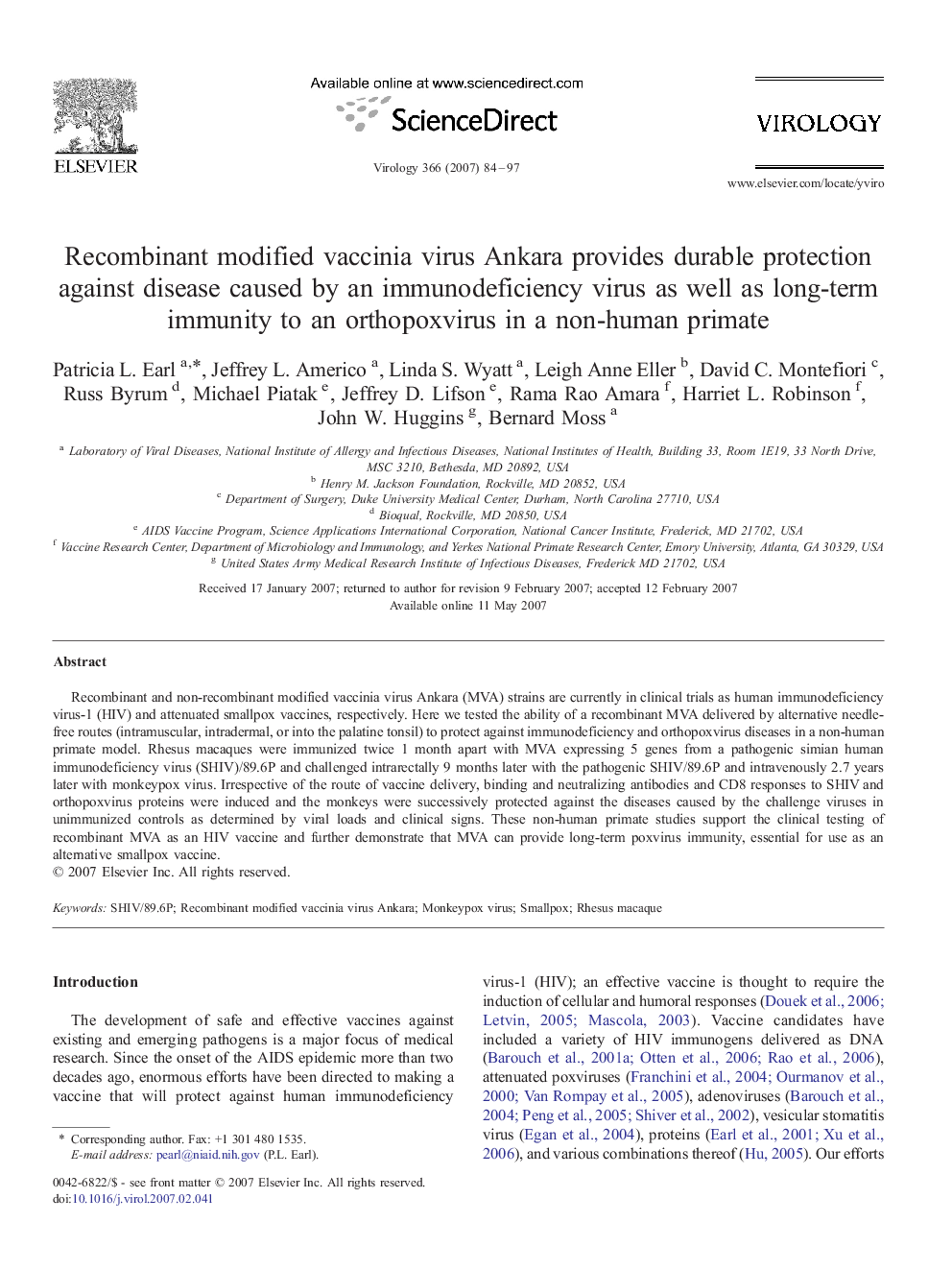| Article ID | Journal | Published Year | Pages | File Type |
|---|---|---|---|---|
| 3426097 | Virology | 2007 | 14 Pages |
Recombinant and non-recombinant modified vaccinia virus Ankara (MVA) strains are currently in clinical trials as human immunodeficiency virus-1 (HIV) and attenuated smallpox vaccines, respectively. Here we tested the ability of a recombinant MVA delivered by alternative needle-free routes (intramuscular, intradermal, or into the palatine tonsil) to protect against immunodeficiency and orthopoxvirus diseases in a non-human primate model. Rhesus macaques were immunized twice 1 month apart with MVA expressing 5 genes from a pathogenic simian human immunodeficiency virus (SHIV)/89.6P and challenged intrarectally 9 months later with the pathogenic SHIV/89.6P and intravenously 2.7 years later with monkeypox virus. Irrespective of the route of vaccine delivery, binding and neutralizing antibodies and CD8 responses to SHIV and orthopoxvirus proteins were induced and the monkeys were successively protected against the diseases caused by the challenge viruses in unimmunized controls as determined by viral loads and clinical signs. These non-human primate studies support the clinical testing of recombinant MVA as an HIV vaccine and further demonstrate that MVA can provide long-term poxvirus immunity, essential for use as an alternative smallpox vaccine.
